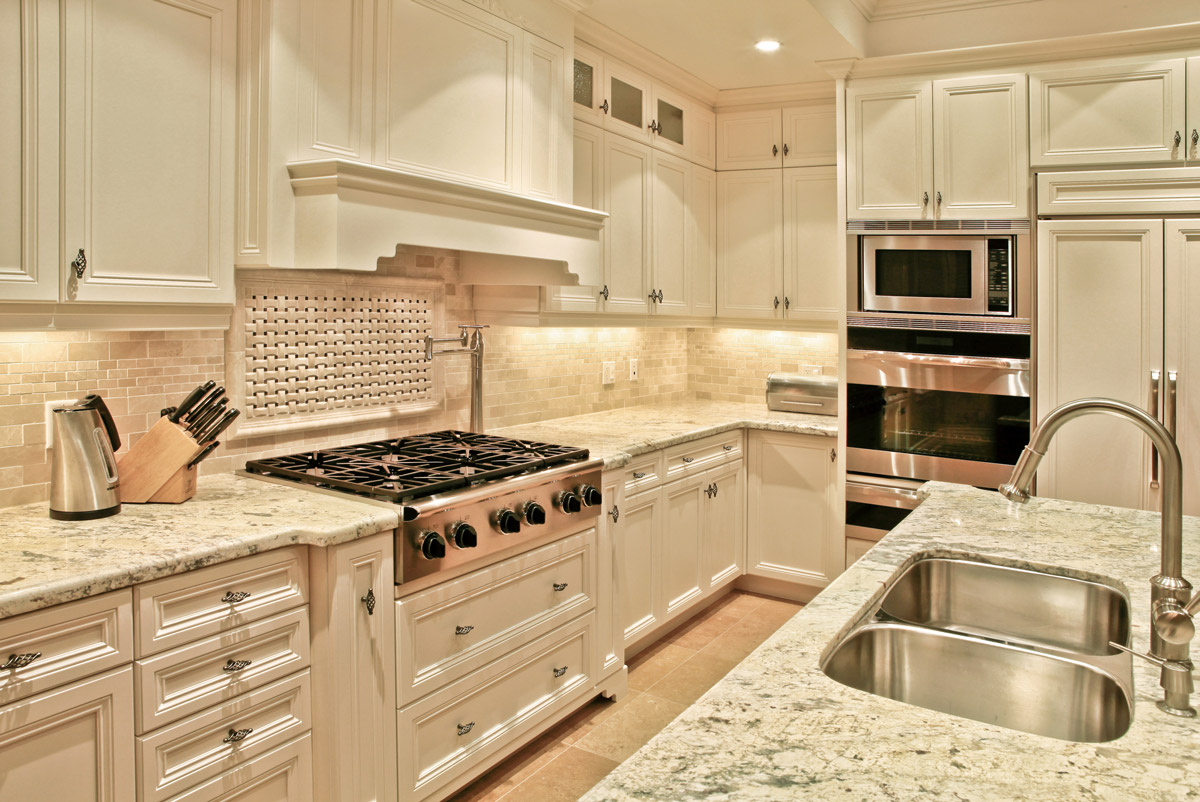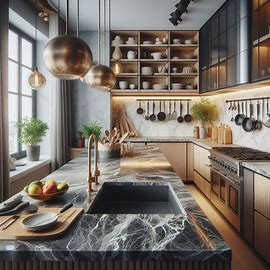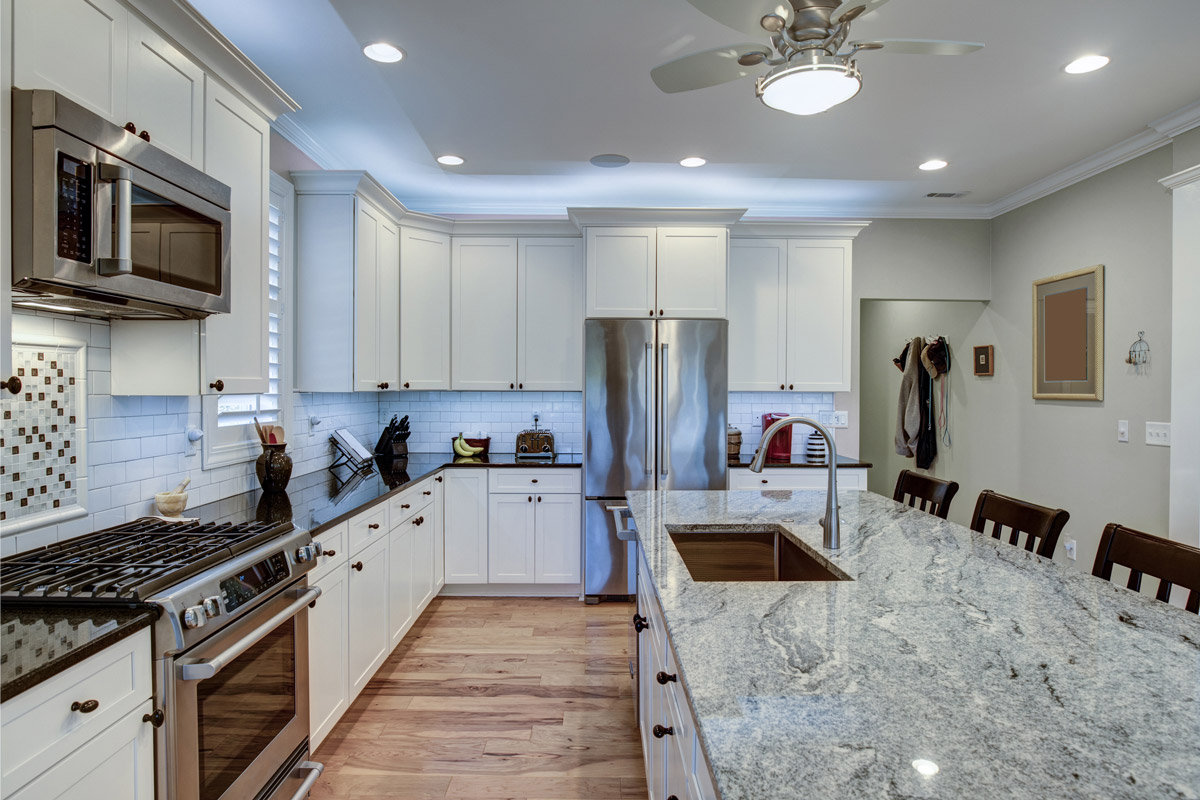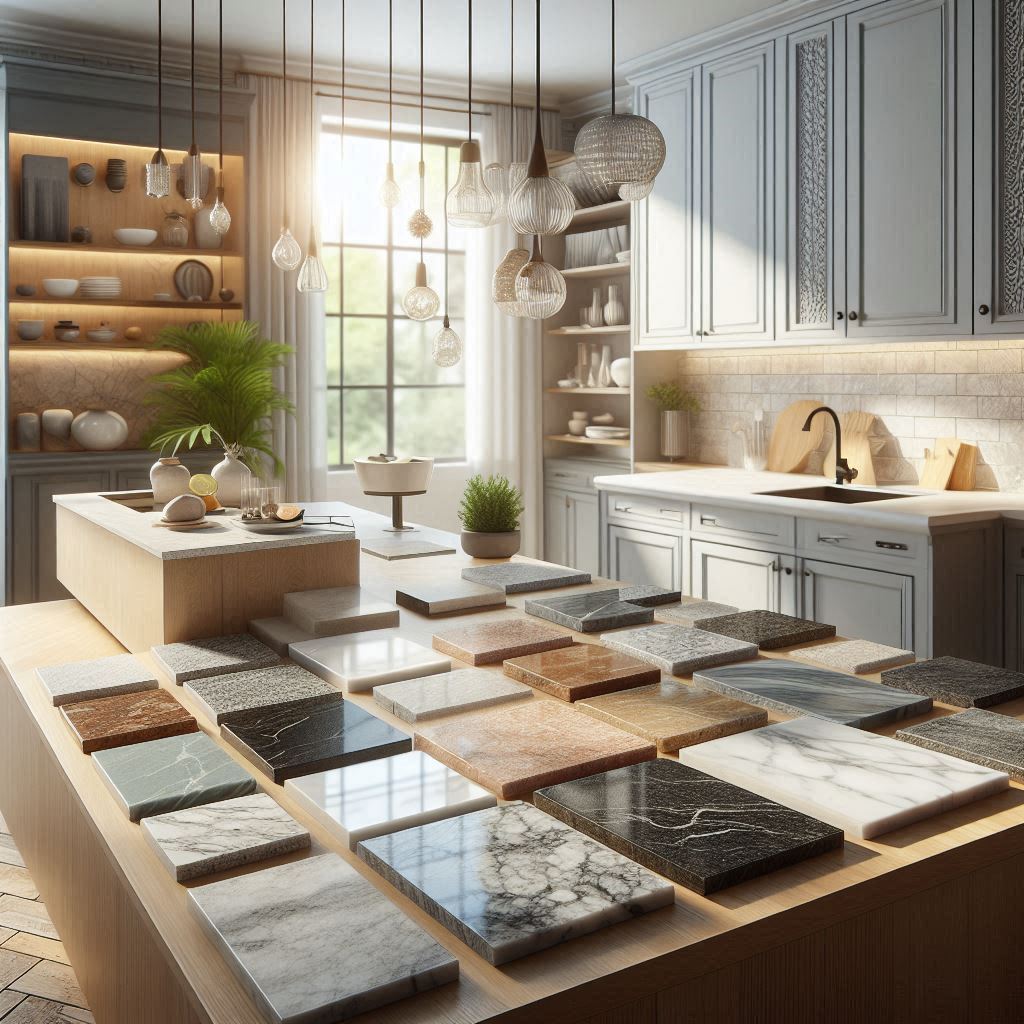My wife is on a few social media kitchen groups
We came to the realization that people are not understanding what they are buying.
Lady saw a photo that my wife posted of our kitchen and reached out to say "granite is so dated". She then showed a photo of her calacatta quartz countertops. "The wife" then stated to her "you have plastic countertops". The lady then went off the handle stating "they are not plastic, they are quartz"... "Which is quartz held together with plastic..." the lady had no idea what she had. A fabricator chimed in and said "actually ma'am, they are plastic, plastic is the binding agent that holds the quartz crystals together. Quartz countertops are quite durable but are not able to be put on outside applications or left outside for storage for this reason. They are made from plastic and quartz crystals."
We just witnessed an ego explosion
This lady was repeating what her designer had sold her on and she was parroting the false claims made to sell her in the first place. We actually feel bad for these people that are sold under false pretenses.Quartz Countertops are great for corporate branding,color management and consistency, They are great for food serving applications as the surface is without imperfections because it is "plastic" and will not harbor bacteria (until the plastic breaks down from heat, UV rays or chemicals that react with plastic).
Polyester/Epoxy Resin ( These are the most common resin used in quartz countertops. )
The burning point of polyester resin typically starts at around 350°C to 450°C (662°F to 842°F).A pan off a host stove can be: Temperature Range: 450°F to 600°F (232°C to 316°C)
Outside Applications : "UV rays can break down the chemical bonds in the polymer chains that make up the resin causing the resin to change shape."
Plastic production is not good for the environment and this material will not be recycled into something else in the future.
In the fabrication process of quartz countertops:
Silica Hazards from Engineered Stone Countertops
Worker Exposure to Silica during Countertop Manufacturing, Finishing and Installation
Workers who cut crushed quartz countertops say they are falling ill from a deadly lung disease
When you purchase quartz countertops you are buying quartz crystals ground down to almost a sand like texture that are then submerged in "plastic resin" (insert any fancy word for plastic). The manufacturers of this man made material keep achieving new heights on making this material look like other materials such as marbles and granite's but you need to understand that the glue that holds this material together is plastic.
Quartz slab Facts:
#1 Quartz is stored inside at all slab yards... WHY? UV rays react with plastic parts and will deform the slab over time.
#2 Quartz is stored inside at all slab yards... WHY? The plastic parts will discolor and ruin the design of the material. Just like your cars plastic parts will discolor over time.
#3 Hot pans and chemicals that react with the plastic parts will affect the quartz countertops in a much shorter time frame than natural stone. Natural stone will also react with these treatments but are more forgiving and will withstand more abuse than Quartz countertops
What You Need to Know About Quartz Countertops
- They Are Not as Durable as Natural Stone: Quartz is engineered stone, made from a blend of natural quartz crystals and resin. While this makes it highly durable for everyday use, it’s not indestructible. High heat can damage quartz, and it is more susceptible to scratching compared to granite or marble.
- Quartz Is Not Designed for Outdoor Use: Unlike natural stones like granite, quartz is not suitable for exterior applications. Prolonged exposure to UV rays can cause discoloration and weaken the resin that holds the material together.
- Quartz Slabs Are Not Stored Outdoors: Because quartz is sensitive to UV rays, manufacturers store slabs indoors to protect them from sunlight. This is a key difference from natural stone, which can withstand outdoor storage and use.
- Heat Resistance Is Limited: While quartz is heat-resistant to a degree, placing hot pots or pans directly on the surface can cause discoloration or even cracking. Using trivets or heat pads is essential to protect your quartz countertop.
- It’s Prone to Chemical Damage: Harsh chemicals and cleaners can damage the resin in quartz countertops. Stick to mild soaps or cleaners designed for quartz surfaces to keep them looking their best.
Quartz vs. Natural Stone: A Quick Comparison
| Feature | Quartz Countertops | Natural Stone (Granite, Marble) |
|---|---|---|
| Durability | Moderate; scratches easier | Highly durable, scratch-resistant |
| Heat Resistance | Limited | Excellent |
| UV Resistance | Poor | Excellent |
| Maintenance | Low | Moderate (sealing required) |
| Outdoor Use | Not recommended | Suitable |
Find a Local Countertop Professional
If you’re considering new countertops, it’s essential to work with a knowledgeable professional who can guide you in choosing the right material for your needs. Whether you’re drawn to quartz for its low-maintenance appeal or prefer the timeless durability of granite, an expert can make all the difference.
Visit GraniteMakeover.com to find a trusted countertop professional in your area. They specialize in connecting homeowners with local experts for custom countertop installations.
The Bottom Line
Quartz countertops are beautiful and practical for indoor applications, but they aren’t without their limitations. They’re less heat-resistant than natural stone, can’t handle UV exposure, and require care to avoid scratches or chemical damage.
If you’re looking for countertops that can handle outdoor use or heavy-duty applications, natural stone might be a better fit. Ready to explore your options? Head to GraniteMakeover.com to connect with a countertop expert near you and bring your vision to life.
Taking the time to understand the pros and cons of quartz countertops ensures you’ll choose the perfect material for your space. Expert advice is just a click away!



 “Countertop calculator was great to use. I received the information i was looking for . I had a great chat with a local vendor and actually ended up using them for the project..” — F. Chiamero
“Countertop calculator was great to use. I received the information i was looking for . I had a great chat with a local vendor and actually ended up using them for the project..” — F. Chiamero








